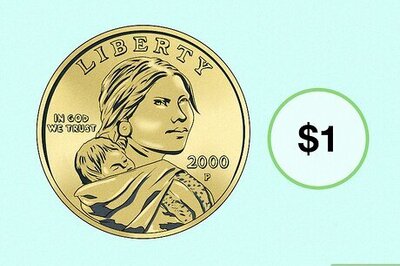
views
New Delhi: In Indra Sawhney vs Union of India, 1992, the Supreme Court capped caste-based reservation at 50%, ruling that “no provision of reservation or preference can be so vigorously pursued as to destroy the very concept of equality”, but with sources saying that the Union Cabinet on Monday has approved 10% reservation for economically backward upper castes in jobs and education it may disturb the balance.
Currently, the government has 27% reservation for backward classes whereas 16 percent reservation is for Scheduled caste and scheduled tribes. The total reservation is for 49% at the moment and if a 10% reservation would be given to the upper caste poor, then the total would go up to 59%.
The Centre plans to introduce “economic backwardness” as a criteria for granting reservation and escape judicial scrutiny as the 50% cap is only for caste based discrimination. However, it remains unclear as to how government will justify this being a case of "economic backwardness" solely when it’s a segregation of the "upper castes" itself.
Amendments would be made to Article 15 and Article 16 which would ensure reservation for the new caste group in public employment and educational institutions.
According to PDT Achary, former Lok Sabha secretariat and Constitutional Expert, the bill “needs to define who are economically backward upper caste” and that if they breach the 50% ceiling limit, then it needs to be passed by a constitutional amendment and thereafter being included in the ninth schedule of the Constitution to protect it from judicial scrutiny.
In Tamil Nadu, the state Assembly passed the Tamil Nadu Backward Classes, Scheduled Castes and Scheduled Tribes (Reservation of Seats in Educational Institutions and Appointments or Posts in the Services under the State) Act, 1993 to keep its reservation limit intact at 69%.
The law was subsequently included into the Ninth Schedule of the Constitution through the 76th Constitution Amendment passed by Parliament in 1994.
Citing the above case, Bihar's Industry Minister Jai Kumar Singh had sought 'justice' in the form of reservations for poor upper castes.
Government under Chief Minister Nitish Kumar had constituted a Sawarna Pichhada Aayog — a commission to study how the economically backward among the upper castes can be given reservations — in 2011.
Just like the Mandal Commission was constituted, on the basis of whose report reservations were given to other backward castes, Singh had stated that providing reservations for poor upper caste people would be on the basis of the commission report.
According to the Constitution of India, citizens having annual income less than Rs 1 lakh and who do not belong to any disadvantaged social category such as Schedule Caste (SC), Schedule Tribe (ST) and Other Backward Classes (OBC) have been categorized as Economically Backward Classes (EBCs) in India.

















Comments
0 comment